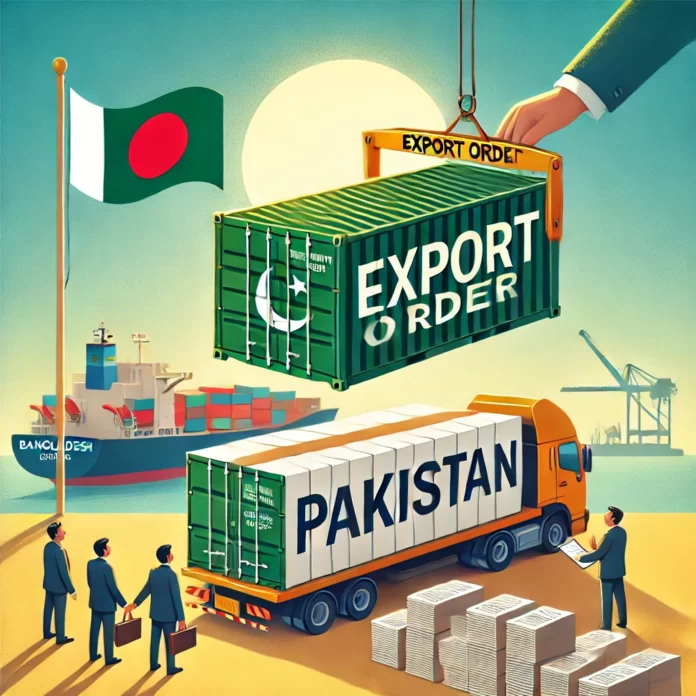Pakistan and Bangladesh have agreed to revive their long-dormant Joint Economic Commission (JEC) in a bid to strengthen trade and investment ties. This decision came during a high-level exchange between Pakistan’s Commerce Minister Jam Kamal Khan and Bangladesh’s Commerce Adviser Bashir Uddin in Dhaka on Friday. The JEC, which was last convened in 2005, will now work on a comprehensive strategy to enhance economic cooperation between the two countries.
The discussions focused on advancing economic cooperation, mutual investments, and boosting bilateral trade, with the two sides agreeing to form a joint working group to improve trade relations. A statement released after the meeting highlighted that a Joint Trade Commission would also be established to map out a roadmap for future commercial ties and set clear goals.
During the talks, both parties discussed several sectors with potential for collaboration, including agricultural modernization, renewable energy, steel industry, green shipbreaking, halal trade, and agro-processing. A particular focus was placed on improving connectivity and logistics to reduce trade costs.
In addition, the meeting explored tariff reduction and preferential access to certain Bangladeshi products in the Pakistani market. Both sides agreed that there was significant untapped potential in bilateral trade, with the people of both nations poised to benefit from enhanced economic cooperation.
The meeting builds on Minister Kamal’s ongoing official visit to Bangladesh, which started on August 21 and will continue until August 24. During his visit, he will meet with Bangladeshi government officials, senior business leaders, and representatives from various industries to explore further opportunities for trade and investment.
The latest exchanges between Pakistan and Bangladesh follow several diplomatic meetings aimed at improving bilateral relations. Notably, just days before Minister Kamal’s visit, he met with Bangladesh’s Adviser for Industries Adilur Rahman Khan to explore industrial collaborations, including potential joint ventures in sectors such as food security, agriculture, industrial technology, and value-added industries. This meeting was part of a broader initiative to strengthen industrial linkages, with both nations seeking a shared vision for growth.
Earlier this year, Pakistan and Bangladesh made significant progress with a visa-free agreement for diplomatic and official passport holders, further signaling a shift toward warmer relations. These developments mark a departure from the historically limited ties between the two nations, particularly after Bangladesh’s secession in 1971. However, since political changes in Bangladesh, bilateral ties have strengthened, with both nations now focused on enhancing trade and investment.




